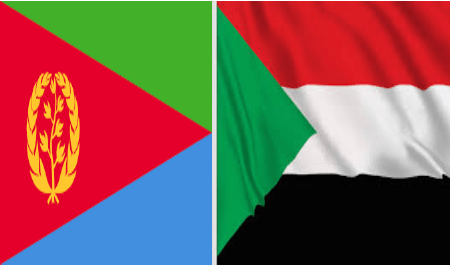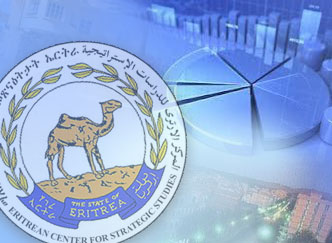September 22, 2018
Speech by Ambassador Andreas Zimmer on the Day of German Unity 2018
 Honourable Ministers,
Honourable Ministers,
Liebe deutsche Landsleute,
Kuburanen, Kuburaten,
N tsnbl hbret Germen Inkuae bidehan metsakum!
I would like to sincerely thank Katharina Lobeck and her string quartett so masterfully performing the national anthems. It was a wonderful performance of these young musicians.
My wife Jeanette and I warmly welcome you. We would like to thank you on behalf of the entire staff of the embassy for joining us in celebrating the 28th anniversary of the “Day of German Unity”.
This year everything is a little bit different: we do it earlier (in September), we have the celebration in the (new) residence, but this year is anyway everything different!
In October Germany is always celebrating the country’s reunification. This year it is the 28th anniversary. Most people are unaware that a unique anniversary is approaching: On August 13, 1961, the GDR began erecting the wall and on November 9, 1989, – exactly 10,315 days later – the wall came down. And soon the Wall will have been down as long as it was up.
Is it really possible? Yes, it is. A German paper did the calculations and determined that on February 5th, 2018, Berlin will have lived free of the Wall for as many days as it was forced to bear it.
The fall of the wall on November 9 1989 brings me to the recent developments in this region.
I experienced the fall of the Wall in West Germany, but the feeling and the emotions were unbelievable, this reminds me a lot of the emotions between Eritrea and Ethiopia, when PM Abiy visited Asmara for the first time on July 8 and now the border opening between both countries. Of course there are differences, in Germany one people was divided because of the power play of the super powers and a lost war, here you have two nations but you lived together in one state for nearly 40 years. This brought of course a lot of personal relations and even cultural links (which even existed before).and here one part seceded from the main country of which it had been annexed and not given the right of self determination. In Germany two halves of one people wanted to come together and were only separated because outside powers wanted it so.
But there are similarities, borders are opened and people and families who were a long time separated want to come together. There is border traffic and we should remember that the border in Berlin was opened by an accident in 1989 and this you could not turn back.
I remember very well the time in Germany when you could not call your relatives in the east but you had to put an application with an operator and he called you back when there was a line available. It could be after hours or even not, especially around Christmas. In times of WhatsApp sounds this unreal, like phantasy.
But now here things have changed a lot. We are in a new era, after the first peace era from 1993- 98, then the war and “no peace-no war” era from 1998-2018 and now in the era of peace. Where will the whole region go to, how will be the development? I think it is good that this peace process has been initiated by the countries which are concerned and not from outsiders. It needed a new leadership in Ethiopia who was ready to engage with Eritrea to find a way out of the impasse in which both countries were stuck. But let me be clear, leaders in both countries should be praised for their courage and their will to find a way of a peaceful get-together.
These developments at the Horn of Africa are a very encouraging sign for Africa and for the whole world. I am not sure if everybody in Europe realizes the significance of these developments.
No country in the world can solve the international problems facing us on its own. In view of its own history and its experiences as regards overcoming tyranny and establishing and consolidating a democratic state founded on the rule of law, my country is facing up to these challenges. Germany is willing to shoulder international responsibility. Germany will be represented as a non-permanent member in the United Nations Security Council for the 2019/20 term. Germany will be represented in this crucial institution for the sixth time. Germany shows already a strong commitment for the United Nations: it is the forth largest contributor to the regular budget and the second largest donor to humanitarian aid and official cooperation. Besides this Germany is one of the largest contributors to peace-keeping missions of the UN.
Besides these positive developments Africa still faces a lot of challenges:
Minister Müller who recently visited Eritrea again highlighted the challenges:
He made the point that on the EU-level there should be a commissioner for Africa where all the different competences for Africa should be concentrated.
Especially concerning the trade policy Europe have to act. In the last years the EU-imports of agricultural products from Africa went down by 40 procent. “The European market” is practically closed. Agricultural products should be imported without taxes and without quotas to the EU. Only in this way there will be created jobs in Africa for the young people.
A closed door for immigration will anyway not be possible, there need to be legal ways to migrate to Europe, scholarships and vocational training. On the other hand African countries should be ready to take back illegal migrants.
We need more engagement of the German business in Africa, up until now there are only 1000 German entreprises out of 3,5 million active in Africa. In 2017 42 out of 54 African states had a higher economic growth than Germany. There is a high dynamic on the African markets.
There are voices you think the development programs of the European countries in the last 50 years did not work and the African countries should generate their development by themselves and not everything should be referred to the colonial times. The main argument of these voices is: why should African countries invest e.g. in infrastructure if others do it? May be it would be the right approach.
Let me conclude with some personal remarks.
This will be my last German National Day Celebration in Asmara. I thank you all that you took us on this journey in the last years. It was and is an incredible time, of course the recent developments with the visit of the Ethiopian PM in Eritrea foremost. But I remember very well the Silver Jubilee, when we had four German music bands here (and we went with the different bands and German politicians to Gurgussum beach), the first visit of the Leipzig Philharmonic Orchestra here and the visits of Minister Müller. I am happy that I could witness these historical times. It seems to me that the work in the last years paid off.
I admired the Eritrean people for its steadiness in the last years against all odds. Few peoples would have resisted this pressure from outside, but you did it. I am convinced you will find your way and develope the country in all respects, economically, socially and legally.
If you are once infected by the Eritrean virus it does not let you go, it keeps you forever. I have to admit I do not leave this post voluntarily, actually I hate to go, but what can we do? We are all soldiers or government officials and have to follow orders. But my better half will stay here so you have at least half of me still here (if not more).
There is a saying in Asmara, for each year you stay in Asmara you gain a year in life expectancy. So we would have liked to stay longer! Serving in Asmara was not only a job for me like any other posting, it was an honour and a mission in life to serve here! If I knew Eritrea earlier I would have applied earlier for Asmara, the other years were a kind of lost years!
I would like to thank my wife Jeanette again for all the work she did to prepare this evening and during the last years.
Finally let me express my thanks to the staff of the Embassy and the Hotel Asmara Palace for organizing the evening.
Let me toast: Viva Eritrea! Viva German-Eritrean Friendship!
I would like to ask the Minister for Foreign Affairs to come forward and cut with me the cake!
Now I do not want to keep you longer away from the buffet.
Thank you and enjoy the evening. Buruk Meskel!



